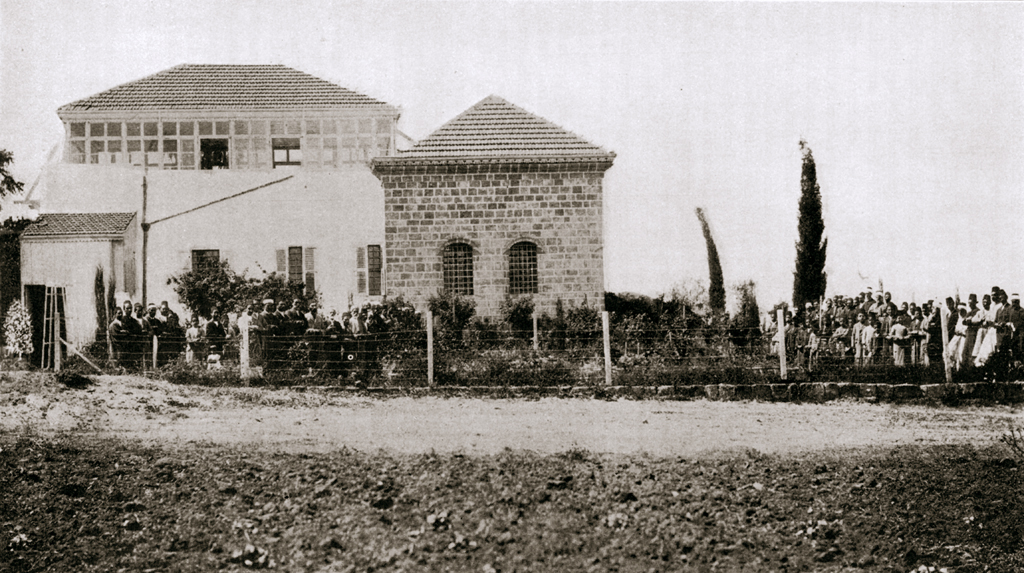The revelation of Bahá’u’lláh stands as a pivotal occurrence in the annals of religious history, a veritable turning point that not only shaped the destiny of millions but also reverberated through the corridors of time, echoing the cries for justice, unity, and peace. Bahá’u’lláh, the founder of the Bahá’í Faith, emerged in a milieu replete with sectarian strife and social turbulence. His advent can be likened to the breaking of a new dawn, illuminating the dim corners of human discontent and ignorance. Through his writings and teachings, Bahá’u’lláh unveiled a vision of a unified world, transcending the boundaries of race, religion, and nationality, thereby instigating a profound transformation within the societal fabric.
At the core of Bahá’í teachings lies the concept of the oneness of humanity. This principle serves as a clarion call to a fragmented world, akin to a symphony that harmonizes diverse melodies into a cohesive whole. Just as individual notes contribute to a richer musical composition, every human being holds intrinsic value and potential, contributing to the grand tapestry of life. The acceptance of this oneness fosters an environment where compassion and empathy flourish, paving the way for global harmony. Bahá’u’lláh’s insistence on upholding human dignity is not merely an ethical stance; it is a foundational truth that reverberates through every teaching, urging humanity to rise above prejudices and engage in collaborative endeavors.
Furthermore, Bahá’u’lláh’s writings illuminate the necessity of establishing a world governed by justice. Justice, in the context of Bahá’í teachings, is not a mere abstract concept but a practical foundation upon which a peaceful society is built. The imagery of a scale, delicately balanced, serves as a poignant metaphor for the equilibrium that justice seeks to achieve. As he articulates in his works, “The best beloved of all things in My sight is justice.” This emphasis on fairness engenders a moral imperative for individuals and communities to advocate for equity, fostering a culture that values the rights of all, particularly the marginalized and disenfranchised.
In addition to justice, Bahá’u’lláh underscores the role of education as a transformative force. Education emerges as the beacon that dispels the shadows of ignorance, empowering individuals to recognize their potential and responsibilities. His advocacy for universal education, particularly for women and children, symbolizes a commitment to progress. The metaphor of a cultivated garden encapsulates this notion; just as a garden flourishes when nurtured with care and attention, so too does society thrive when its members are equipped with knowledge. The cultivation of the mind leads to the blossoming of virtues, creativity, and innovation, essential ingredients for a sustainable future.
The teachings of Bahá’u’lláh further elucidate the significance of spiritual development. The journey toward spiritual maturity resembles the ascent of a mountain, where each step brings individuals closer to the summit of divine understanding. This metaphor illustrates the continuous evolution of the soul, a process grounded in the daily practice of virtues such as love, service, and humility. Bahá’u’lláh’s emphasis on the interconnectedness between material and spiritual well-being fosters a holistic approach to life, challenging believers to cultivate both aspects in concert. The aspiration to embody these virtues not only enriches the individual but also contributes to the collective advancement of humanity.
Moreover, the notion of global governance is intricately woven into Bahá’u’lláh’s vision. He foresees a world where nations collaborate harmoniously, transcending the antiquated paradigms of competition and conflict. The image of a vast, interconnected web exemplifies this ideal, where each strand represents a nation working collaboratively towards shared goals, such as peace, security, and prosperity. This vision challenges us to envisage a world without the fetters of nationalism and hatred, fostering a climate where dialogue and cooperation reign supreme.
In contemplating the path forward, Bahá’u’lláh emphasizes the importance of individual agency. Each individual is called to take up the mantle of responsibility, actively participating in the betterment of society. This call to action echoes through the ages, urging each of us to embody the principles of unity, justice, and service in our daily lives. In an era marked by upheaval and disunity, the teachings of Bahá’u’lláh present a roadmap, replete with profound insights and practical guidance.
Ultimately, Bahá’u’lláh’s teachings serve as a guiding light for humanity, inviting a collective awakening to a higher reality. They beckon us to step beyond the confines of ignorance and prejudice, fostering a culture grounded in understanding and respect. The profound implications of his insights offer not merely hope but a clarion call to action, urging us to embark upon a journey towards a more equitable and harmonious world. As history continues to unfold, the teachings of Bahá’u’lláh stand as a testament to the boundless potential of humanity when the ideals of love, justice, and unity are ardently pursued.
In synthesis, the legacy of Bahá’u’lláh and his resounding call for the oneness of humanity will resonate through time, compelling future generations to engage earnestly with these teachings. In doing so, the world may inch closer to the realization of its latent ideals, where the light of truth shines brightly, illuminating the path towards global harmony and spiritual fulfillment.
